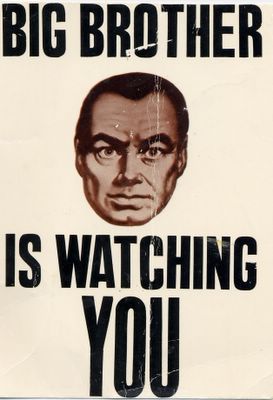
There are interesting parallels between Lewis's vision and that of George Orwell, despite the fact that Orwell had disliked Lewis's wartime religious broadcasts.
Orwell reviewed the book for the Manchester Evening News, commenting "Plenty of people in our age do entertain the monstrous dreams of power that Mr. Lewis attributes to his characters, and we are within sight of the time when such dreams will be realisable."
In some ways That Hideous Strength can be seen as describing one of the possible paths to a 1984 - one 1984, even if not quite Orwell's. The review was in 1945, before Orwell wrote 1984, and so That Hideous Strength may be considered as a possible influence.
(Source - Wikepedia)










